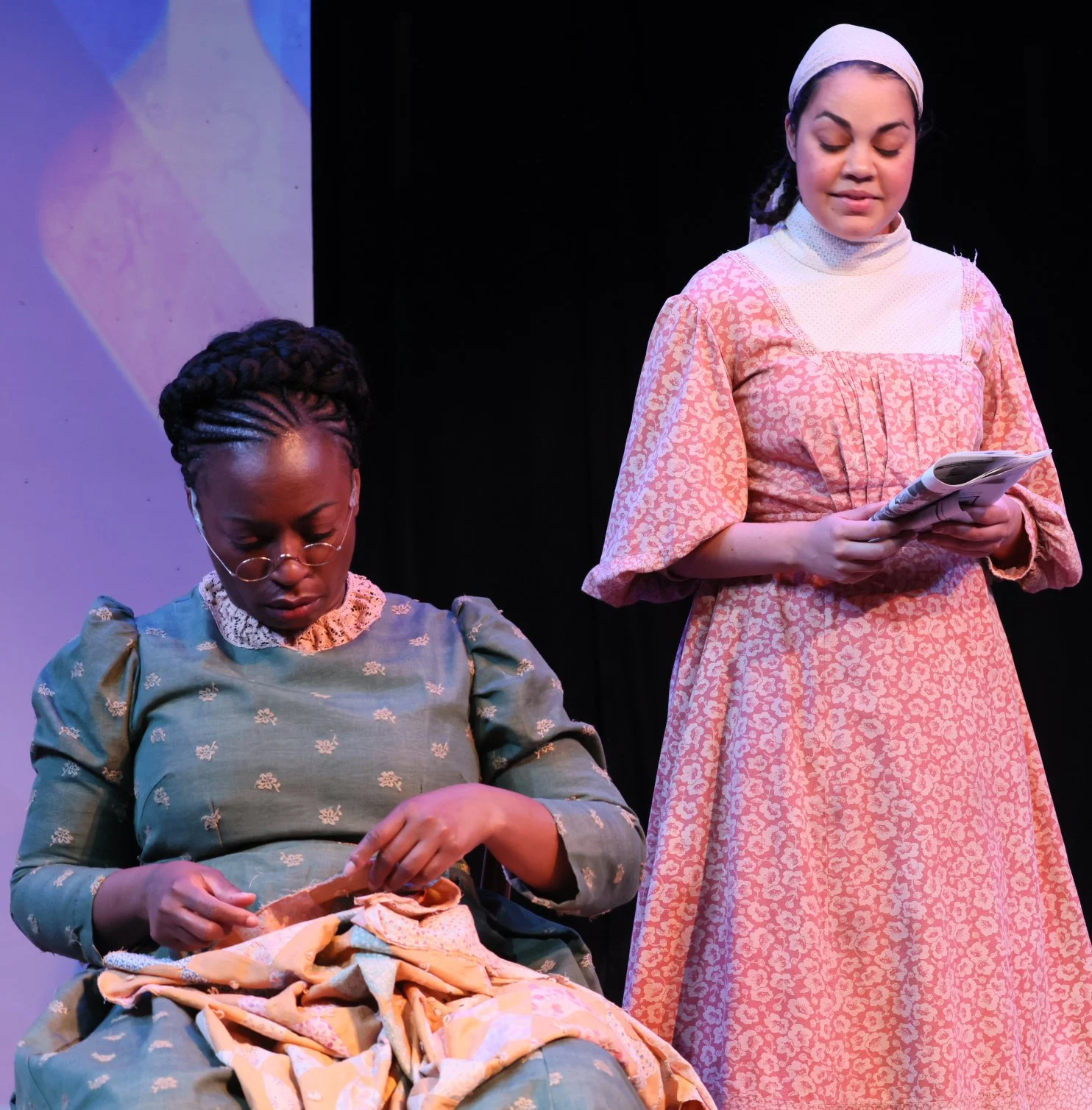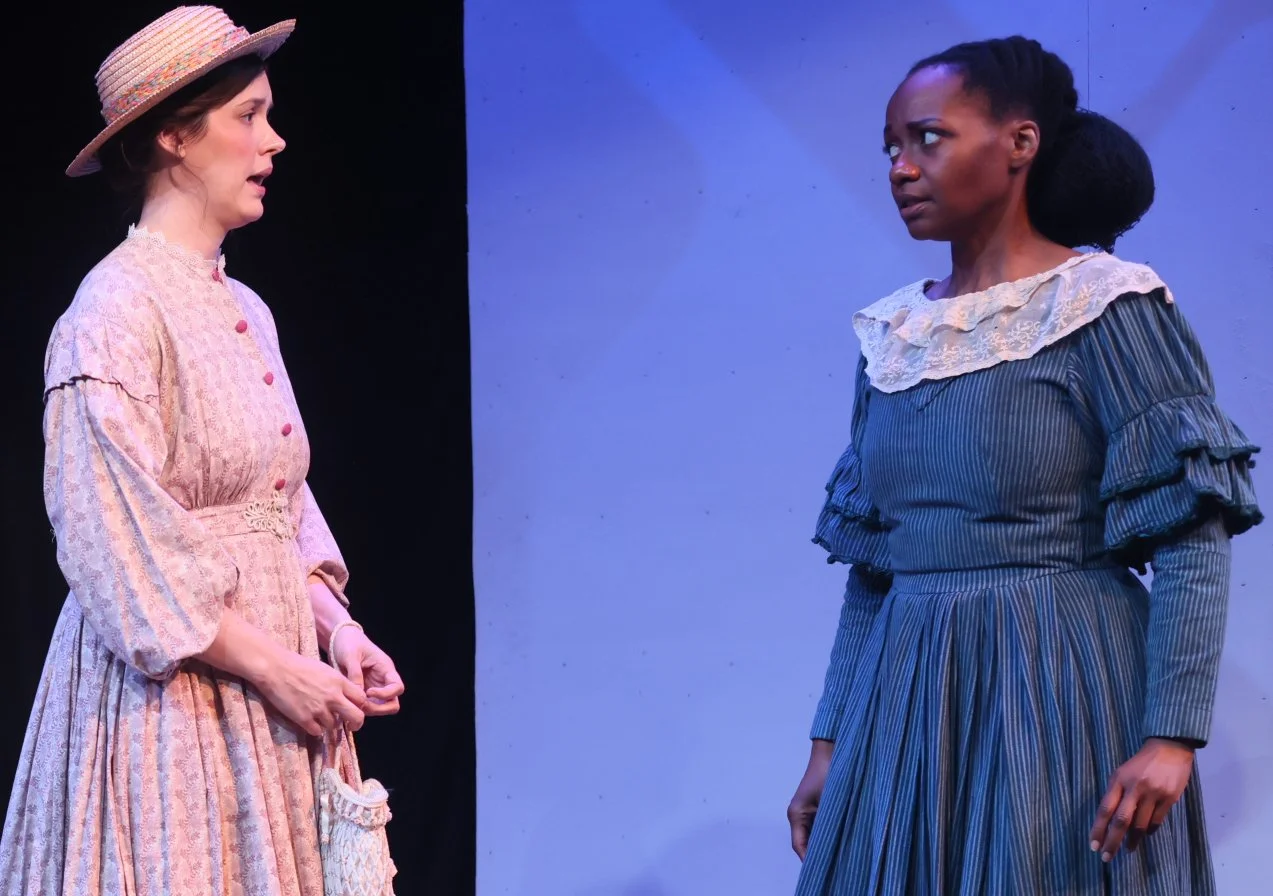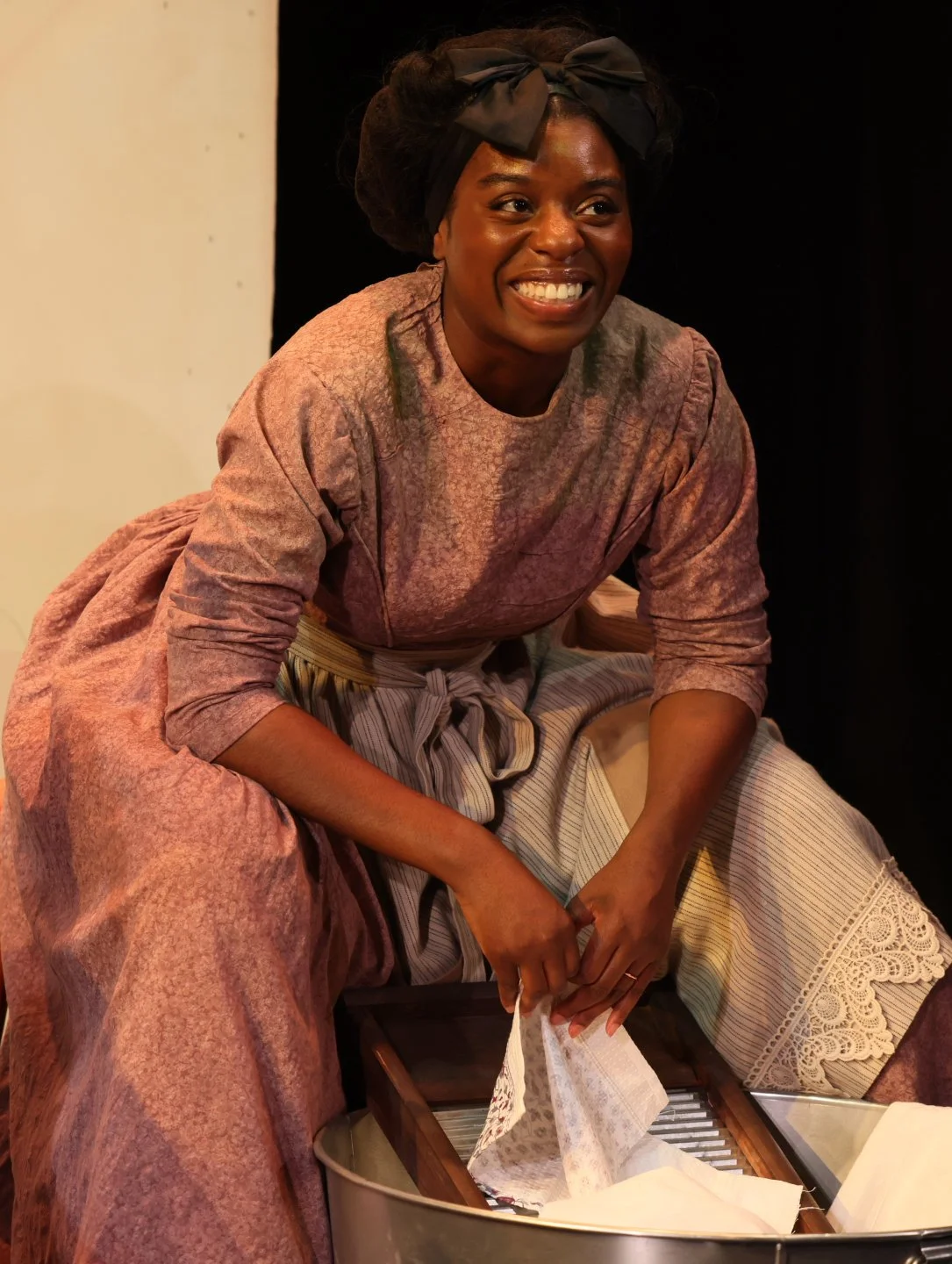Jeanie (Bianca Laverne Jones, left) listens as Jewel (Kerry Warren) reads news coverage of their strike.
Kelundra Smith’s The Wash is an inspiring play about the originators of the Atlanta Washerwomen’s Strike of 1881, a little-known chapter in American labor history. Making its New York premiere, Smith’s drama captures the black strikers’ struggles during the Jim Crow era in the post–Civil War American South, including public indifference to the women’s working conditions and the demeaning, hateful attitude of their white customers toward them.
Charity (Alicia Pilgrim, left) and Thomasine (Margaret Odette) read an eviction notice from the City of Atlanta.
The strike is considered a revolution in labor history: it was the first successful interracial, organized labor strike. Central to the play are five striking characters calling themselves the Washing Society. Although the women in the group feel powerless to get help from their city, they “want the City Council to recognize us as essential workers.” Their local newspaper, the Atlanta Journal Constitution, counters: “We must stop those washing Amazons.”
The women, however, are equally determined in their battle—“If we don’t win this fight, they’ll have us back on the plantation in no time.” In the meantime, because of threats of physical violence, many of the women take refuge at the Summerhill Baptist Church, which supported their efforts to organize a city-wide strike.
Smith shows the emotional toll of a labor strike with wit and angst. Although the issue behind the strike is obvious—No Pay No Wash—sharing their stories makes for an engaging theatrical experience. Together, the characters represent the diversity of people who came to be washerwomen.
Mozelle (Rebecca Haden) discusses with Anna (Eunice Woods) ways to expand the strike to help all the washerwomen in Atlanta.
But the playwright also individualizes each woman’s struggle for human dignity. Anna (Eunice Woods) takes in washing in her home but cannot make ends meet. “God, can you hear me?” she asks. “I can’t pay my property taxes.” Faced with eviction, she decides that a strike is necessary to get what the washerwomen deserve.
Jeanie (Bianca LaVerne Jones) is the contrarian in the group, always ready with a humorous quip. She cleverly points out what one can tell about a couple from washing sheets. “Dem crackers oughta do right by us ’cause we know all they secrets.” Initially skeptical about the strike, she becomes a strong, vocal supporter.
Thomasine (Margaret Odette) is a wife and mother of four and victim of spousal abuse. She is put under the most stress by the strike and must make difficult, unselfish decisions that go against her friends. “I got four kids comin’ up like dandelions,” she says. “Somethin’ [poor pay] is better than nothin’.”
Jewel (Kerry Warren ) is a light-skinned African American woman with a strong sense of self who believes that education is the key to a better life. She wants to “walk into a room and not [have people] assume I’m there to clean,” she says.
Charity (Alicia Pilgrim ) is newly married and hopes to have children someday. “When me and William got married two years ago,” she tells the group, “we was hopeful ’bout it. Then I lost two [children], but most of the time didn’t nothin’ happen at all. I just got sad.”
Charity (Alicia Pilgrim) hard at work in The Wash. Photographs by Hollis King.
The production reinforces the belief that together is always stronger: according to Anna, “Listen here, we get there together, or not at all. That’s what we been sayin’ from the start.”
Mozelle (Rebecca Haden) is a poor white woman who has to take care of her mother and daughters. “I need this,” she says. “My momma sick, and I been raisin’ two daughters by myself since my husband left.” It’s Mozelle’s idea to expand the strike by reaching out to the white washerwomen in Atlanta.
The Atlanta strike grew rapidly, drawing in whites as well, and within a few weeks thousands were supporting the women’s effort. With the prospect of Atlanta hosting the International Cotton Exposition in dirty clothes, the strikers receive the wages they had asked for—$1 for 12 pounds of laundry.
Director Awoye Timpo has molded a skillful ensemble. The cast not only performs well together, but they move scenery throughout the play to accommodate the 11 scenes. The play’s strength lies not just in the facts and the history but in identifying the workers as having human worth, not just financial.
The Woodie King Jr’s New Federal Theater production of The Wash runs through June 29 at the WP Theater (2162 Broadway at 76th Street). Evening shows are at 7 p.m. Tuesday, Thursday, Friday and Saturday; matinees at 3 p.m. Wednesday and Sunday and at 2 p.m. Saturday. For tickets and more information, visit wptheater.org.
Playwright: Kelundra Smith
Direction: Awoye Timpo
Scenic Design: Jason Ardizzone-West
Costume Design: Gail Cooper-Hecht
Lighting Design: Victor En Yu Tan
Sound Design: Bill Toles






